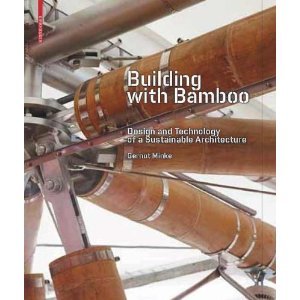Traditionally a building material of hot climate zones in Asia and Latin America, bamboo is increasingly discovered by architects of the Northern hemisphere as well. It is lightweight, highly elastic and ductile, and in addition offers qualities especially in demand in an era of limited resources, renewability and abundant availability. Architects and engineers have significantly widened the applications of bamboo in recent years and today even wide-span bridges can be built from it. Impressed with its technical and aesthetic possibilities, European, Japanese and North American architects have adopted bamboo for a variety of construction tasks, ranging from exclusive private residences to experimental pavilions, and from airy canopies to schools or museums. The book provides a detailed manual for bamboo constructions and presents a broad selection of built examples, among them the spectacular bamboo pavilions of the 2010 Shanghai World Exposition, a parking garage in Leipzig, Germany, the Nomadic Museum in Mexico City and Richard Rogers Terminal 4 at Madrid Airport. Ein traditionelles Baumaterial der warmen Klimazonen Asiens und Lateinamerikas, erfreut sich Bambus neuerdings eines wachsenden Interesses unter Architekten der nördlichen Hemisphäre: Bambus hat nicht nur ein geringes Gewicht bei großer Stabilität und ist ausgesprochen elastisch, sondern zeichnet sich auch durch Eigenschaften aus, die in Zeiten schwindender Ressourcen besonders gefragt sind: das Material ist reichlich verfügbar und zudem erneuerbar. Die Anwendungsbereiche von Bambus in der Architektur haben sich erheblich erweitert und diversifiziert, so dass heute sogar weitgespannte Konstruktionen wie Brücken daraus gebaut werden. Von diesen technischen und ästhetischen Möglichkeiten beeindruckt, nutzen auch Architekten in Europa, Nordamerika und Japan Bambus für vielfältige Bauaufgaben. In den letzten Jahren sind unter anderem private Wohnhäuser und Ausstellungspavillons aus Bambus entstan

